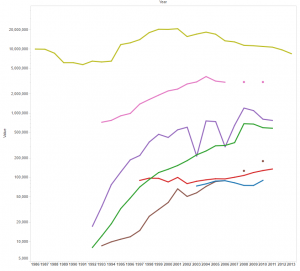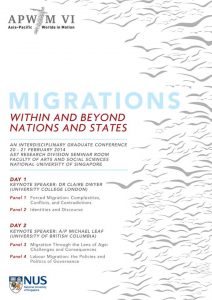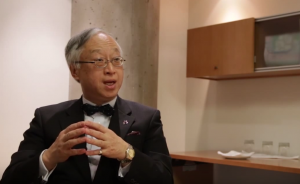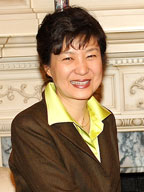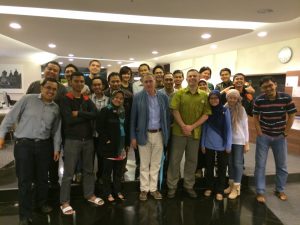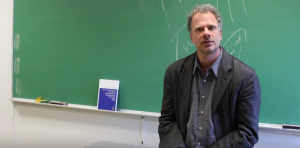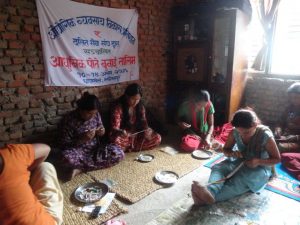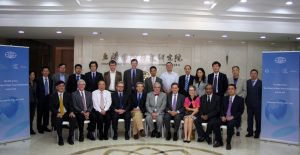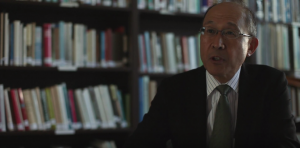Are Chinese Citizens becoming more Assertive? Perspectives from the (Limited) Data
Memo #307 By Sophia Woodman – Sophia.Woodman [at] ed.ac.uk The last decade has seen an explosion of academic and media reporting about protests in China. Chinese citizens’ access to social media makes it harder for the authorities to suppress information about unrest. Even when mainstream media reporting is censored, often the news of an event […]
Third Culture Kids and the Rise of a Cosmopolitan Ethos in the Asia-Pacific
Memo #289 By Grégoire Legault – gregoire.legault [at] alumni.ubc.ca The world is changing, thanks in great part to unparalleled levels of migration. According to the United Nations, more than 230 million people were living outside of their countries of birth in 2013, many of them originally born in Asia. Conceptually, foreign-born residents of third countries already […]
Gaps in the Protection of Civilian Victims of Armed Violence
Memo #281 By Ramesh Thakur – ramesh.thakur [at] anu.edu.au As demonstrated by recent events in Sudan, Sri Lanka, Libya, and Syria—and earlier in Rwanda, the Balkans and East Timor during the 1990s—the numbers of civilians killed in contemporary armed conflicts is intolerably high. Their plight is a lasting stain on an internationalized human conscience. Our […]
Japan’s Economy & Trade (A Video Interview with Watanabe Yorizumi)
Memo #280 Featuring Watanabe Yorizumi Last month the Asia Pacific Memo sat down with Watanabe Yorizumi, since 2005 a member of the Faculty of Policy Management at the Graduate School of Media and Governance, Keio University. Professor Watanabe came to his academic career with a distinguished diplomatic background, having served several appointments in Japan’s foreign service, […]
The Paradox of Women Leaders in Asian Democracies
Memo #277 By Timothy S. Rich – timothy.rich [at] wku.edu Political life in Asian countries is often characterized as a man’s world, especially compared to its Western counterparts. Yet we have also seen increasing political leadership opportunities for women in the region. Since 2000 alone, women have been elected prime minister in Bangladesh and Thailand, […]
Voices from Indonesia’s Rising Policy Elites: a Confident, Flexible, and Creative Indonesia
Memo #275 By Yves Tiberghien – yves.tiberghien [at] ubc.ca Asia is in the midst of a great uplift, but also great social change and geopolitical transformation. In the midst of China’s rise, China-Japan tensions, India’s new voice, and the US pivot, how are Indonesians thinking and planning? Indonesia is only slowly waking up to its […]
The Global Intensification of Supplementary Education
Memo #271 Featuring Julian Dierkes Recently, Ee-Seul Yoon of the Faculty of Education at UBC in coordination with the Asia Pacific Memo sat down with Dr. Julian Dierkes, Associate Professor and Keidanren Chair in Japanese Research at UBC’s Institute for Asian Research, to pose a few questions about Professor Dierkes’ recently co-edited volume, Out of the Shadows: The Global […]
NGO Funding and Overhead Costs: Fallacies and Misconceptions
Memo #262 By Xue-Rong Jia – xue-rong.jia [at] alumni.ubc.ca Almost every international non-governmental organizations (INGO) releases an annual report summarizing its activities and achievements for the year, including a breakdown of its revenues and expenses. For example, last year Save the Children spent 3.8 percent of its revenues for administrative purposes, 9 percent in fundraising […]
Fragmentation vs. Integration in Asia in 2014: A Year for the History Books
Memo #259 By Yves Tiberghien – yves.tiberghien [at] ubc.ca In the wake of major leadership change around East Asia, what will be the major trends in the Asia/Pacific region in 2014? Did the battle over the Chinese Air Defense Identification Zone (ADIZ) and the provocative visit to Yasukuni Temple by Prime Minister Abe on December […]
The Asian Century (Video Interview with Masahiro Kawai)
Dr. Masahiro Kawai, Dean of the Asian Development Bank Institute, discusses the importance of peace, security, and stability in achieving an ‘Asian Century’.
